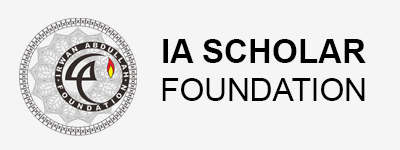TRANSKULTURASI NILAI-NILAI KEPEMIMPINAN TRANSFORMATIF DALAM PENGELOLAAN PENDIDIKAN ISLAM
Transculturation Of Transformative Leadership Values In The Management Of Islamic Education
DOI:
https://doi.org/10.35719/fenomena.v19i1.32Islamic education starting from the foundational and operational, can not be adequately solved. This condition draws attention among practitioners and managers of Islamic education to be neatly disentangled and can be found at the tip of the base. Therefore, this paper briefly aims to parse the problem through a transformative leadership approach based on social values. The significance of transformative leadership as a conceptual and transformational framework in the management of education through the roles and actions of a leader. Internalization of transformative leadership is expected to be a positive energy to influence individual social action in education. The transformative leadership is based on religious and prophetic values, just as the prophetic mission becomes the dominant force in managing Islamic education and legitimizing cultural power. Such power is the social role of the individual by inspiring, enlightening, empowering, inspiring without indoctrinating, awakening without harm, arousing without compelling, and inviting without reign, through morality in achieving the aims of the organization. Thus the portrait of transformative leadership must have the ability to influence individual actions and behavior through trait approach, behavior approach, power-influence approach, situational approach, and integrative approach.
Downloads
References
Adz-Dzakiy, M.H.B., Budiharto, S., Zulaifah, E., Kurniawan, I.N., & Riyono, B. Prophetic Intelligence: Construct Development and Empirical Test for Its Role in the Perception of Unethical Conduct among Indonesian Government Employees. Paper Presented at International Conference on Muslims and Islam in the 21st Century: Image and Reality, Petaling Jaya: The Department of Psychology International Islamic University Malaysia and The International Institute of Muslim Unity Kuala Lumpur, 2004.
Bennis,W., dan Nanus, B., Leaders: The Strategies for Taking Charge, New York:Harper & Row,1985
C.E. Beeby, Assessment of Indonesiaan Education A Guide in Planning. terj, BP3K dan YIIS. Jakarta: LP3ES, 1987
World Bank, Education in Indonesa, From Crisis to Recovery. Education Sector Unit, East Asia and Pacific Regional Office, 1998
C.E. Beeby, Assessment of Indonesiaan Education A Guide in Planning. terj, P3K dan YIIS. Jakarta: LP3ES,1987
Charlene Tan, Islamic Education and Indoctrination: The Case in Indonesia, New York: Routledge, 2011
Daft, R.L, The Leadership Experience, Third Edition. Mason, Ohio: South-Western Thomson Corporation, 2005
Daniel Goleman, Working With Emotional Intelligence, Kecerdasan Emosi un-tuk Mencapai Puncak Prestasi, Jakarta: Gramedia, 2003
Djokosantoso Moeljono, 13 Konsep Beyond Leadership, Jakarta: PT Elex Media Komputindo,2012
Drucker,P.F., The Efective Executive, New York: Harper & Row,1966
Edmonds. R, Some School Work and More Can, dalam Social Policy, 1979
Frans Mardi Hartono, Paradigma Baru Manajemen Indonesia,Menciptkan Nilai dengan Bertumpu Pada Kebajikan dan Potensi Insani, Bandung: Mizan Pustaka, 2009
Fred Lunenburg, International Journal of Management, Business and Administrations, Volume 13, Number 1, 2010
Gay Hendricks dan Kate Ludeman, The Corporate Mystic: A Guidebook for Visionarities With Their Freet on The Ground, New York: Bantam Book, 1996
H.A.R Tilaar, Manajemen Pendidikan Nasional, Remaja Roesdakarya, Ban-dung cet-4, 1999
Hoy, Wayne K, Miskel, Cecil G, Educational Administration: Theory,Research, and Practice, 6th Edition. Boston: McGraw Hill Higher Education, 2001
Hsu, W.L., Cheng, B.R., Huang, M.P., & Farh, J.L. Moral Leadership in Tai-wanese Organization: Developing the Construct and the Measurement. Pa-per Presented at Inaugural Conference (Beijing: International Associa-tion for Chinese Management Research IACMR, 2004)
Irawan, Paradigma Keilmuan Manajemen Pendidikan Islam, Ejournal Manageria Manajemen Pendidikan Islam, UIN Sunan Kalijaga Jogyakarta Vol. 1, No. 2, November 2016)
Locke, E.A., Esensi Kepemimpinan, Terj, Jakarta, Mitra Utama, 1997
M. Dawarn Rahardjo, Ensiklopedi Al-Qur'an, Jakarta: Paramadina, 1996
Malik Fadjar, Madrasah dan Tantangan Modernitas, Mizan: Bandung, 1998
Mastuhu, Memberdayakan Sistem Pendidikan Islam, Logos, Ciputat, Jakarta, 1999
Mulyasa, Manajemen Berbasis Sekolah, konsep, Strategi, dan Implementasi, Bandung: Remaja Rosdakarya, 2002
Pamela Munn, Parents and School; Customers, Managers or Partners, Routledge, London and New York, 1993
Priadi Surya, Mencari Model Kepemimpinan Profetik Transformatif: Menuju Indonesia Berdaulat, Dimuat dalam Prosiding Seminar Nasional, FIS UNY 13 April 2013
Rabindra N. Kanungo dan Mendonca, Ethical Dimentions of Leadership, London: Sge, 1996
Robert J. Starratt, Menghadirkan Pemimpin Visioner: Kiat Menegaskan Peran Sekolah, Yogyakarta: Kanisius, 2007
Russell, R.F, The Role of Values in Servant Leadership, Leadership and Organization Development Journal, 22, 2, 2001
Saskin,M., dan Burke, Understanding and Assessing organizational leadership, dalam K.E.Clark dan M.B.Clark, Measure Of leadership, West Orange,NJ: Leadership Library Of America,1990
Sayle, Bart and Kumar, Surinder, Reading The Best Train. A Leadership plan for Explosive Growth. Penguin Group USA, 2006
Selo Soemarjan, Setangkai Bunga Sosiologi, Yayasan Badan Penerbiat Fakultas Ekonomi UI, Jakarta, 1974
shom Hasdzik., Visi dan Aksi SDM Pesantren dalam Meningkatkan Perannya Pada Indonesia Modern, Jombang: 1995
Sudarwan Danim, Kepemimpinan Pendidikan, Bandung: Alfabeta, 2010
_______, Menjadi Komunitas Pembelajar: Kepemimpinan Transformasional dalam Komunitas Organisasi Pembelajaran, Cet.ke-2, Jakarta: Bumi Aksara, 2005
Sudarwan Danim, Menjadi Komunitas Pembelajar: Kepemimpinan Transformasional dalam Komunitas Organisasi Pembelajaran, Cet.ke-2, Jakarta: Bumi Aksara, 2005)
Syafnan, Kepemimpinan Transformatif di Lembaga Pendidikan, Ta’dib, Vol. 13, No.1 Juni 201
Tjiptono, Fandy, dan Akhmad Syakhroza, Kepemimpinan Transformasion-al, Manajemen dan Usahawan Indonesia, No. 9, Thn. XXVIII September 1999
Tobroni, The Spiritual Leadership Mengefektifkan Organisasi Noble Industry melalui Prinsip-Prinsip Spiritual Etis, Malang: UMM, 2002
World Bank. Education in Indonesa: From Crisis to Recovery, Education Sector Unit, East Asia and Pacific Regional Office, 1998
Yukl, Gary, Kepemimpinan Dalam Organisasi; terj. Budi Supriyanto, Jakarta: PT. Indeks, 2010
Downloads
Section
License
Copyright (c) 2020 Ahmad Fauzi

This work is licensed under a Creative Commons Attribution-NonCommercial 4.0 International License.












